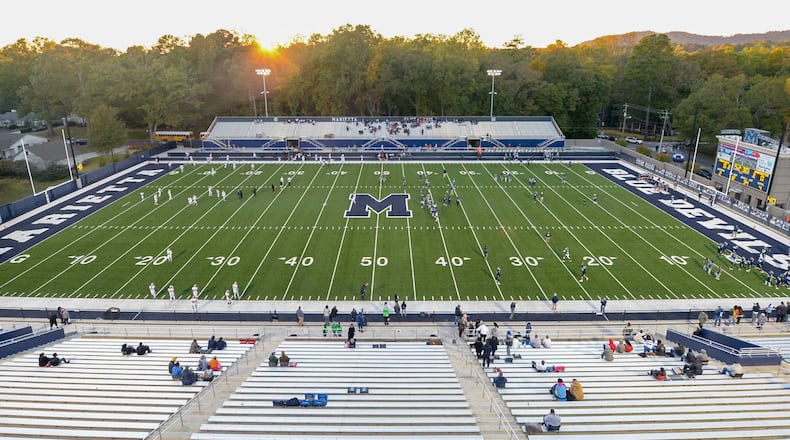Today’s interviewee is Jeff Hopp, the director of sports medicine at Marietta City Schools and the vice president for the Southeast Athletic Trainers Association. Hopp is a member of the Georgia High School Association’s sports medicine advisory committee.
Jeff Hopp, Marietta City Schools director of sports medicine
1. For those unfamiliar with the sports medicine advisory committee, what is its makeup and purpose? “The GHSA Sports Medicine Advisory Committee (SMAC) is comprised of a wide variety of healthcare professionals including physicians, athletic trainers, nurses and EMS as well as school administrators and game officials. Our purpose is to provide guidance and recommendations to the GHSA on policies or decisions in regard to the health and safety of athletes. For example, outside of these unprecedented times, we have helped craft changes to policies related to heat illness, emergency action plans, and CPR requirements as well as build educational materials and forms that are distributed to member schools. Our main focus in recent months has of course been COVID-19 and determining when it will be safe to go back to playing sports, as well as what precautions need to be taken when that happens.”
2. The committee has met for a number of weeks now, often with significant news announced later that day or the next by Robin Hines, the GHSA’s executive director. What are those meetings like? Have there been times when the group was far apart on how to proceed, or how fast or how cautiously to open? “The SMAC has met virtually on a weekly basis for the last few months. We are looking at data from the CDC, Georgia Department of Public Health and other sources as well as the latest research. We are hearing from members of the committee on what is happening at their facilities or schools. GHSA also updates us on what is being reported from all the member schools. With that many people (about 15) from all over the state on the committee, there are always differing opinions. However, we all have the same goal of keeping athletes, coaches and everyone else involved safe while trying to determine if sports can be played. We also know that there is no one right answer that will work for the entire state of Georgia as COVID-19 is impacting areas of the state differently. As a result, some schools or school systems may be ready to play, others may not.”
3. What are your biggest concerns about playing football in this pandemic? “Being realistic, every school in the state is going to be impacted by COVID-19 at some point if they haven’t already. That being said, my biggest concern is whether we can do enough to mitigate the risks of COVID to make football, and other fall sports, safe. That goes beyond just the athletes, coaches, athletic trainers and other team staff - to game-day staff, game officials and spectators. It also includes the families of everyone involved, as well. Although we will not be able to eliminate every risk, if everyone is willing to do their part to ensure it is as safe possible, I do believe fall sports can continue.”
4. What makes you optimistic that football can and should be played beginning Sept. 4? What would you say to those concerned that Georgia should postpone further? “I think most schools have been preparing for this and will be able to take the needed precautions to safely get the season started on Sept. 4. Everyone understands football will be different this fall, and it won’t be easy, but I believe the benefits that come from football and high school sports in general are needed at this point, not only for the athletes but for the communities as well. Compared to other places, the SMAC and GHSA have taken the recommendations from the CDC and other agencies to create a
Produced by Georgia High School Football Daily, a free e-mail newsletter. To join the mailing list, click here.
About the Author
The Latest
Featured

